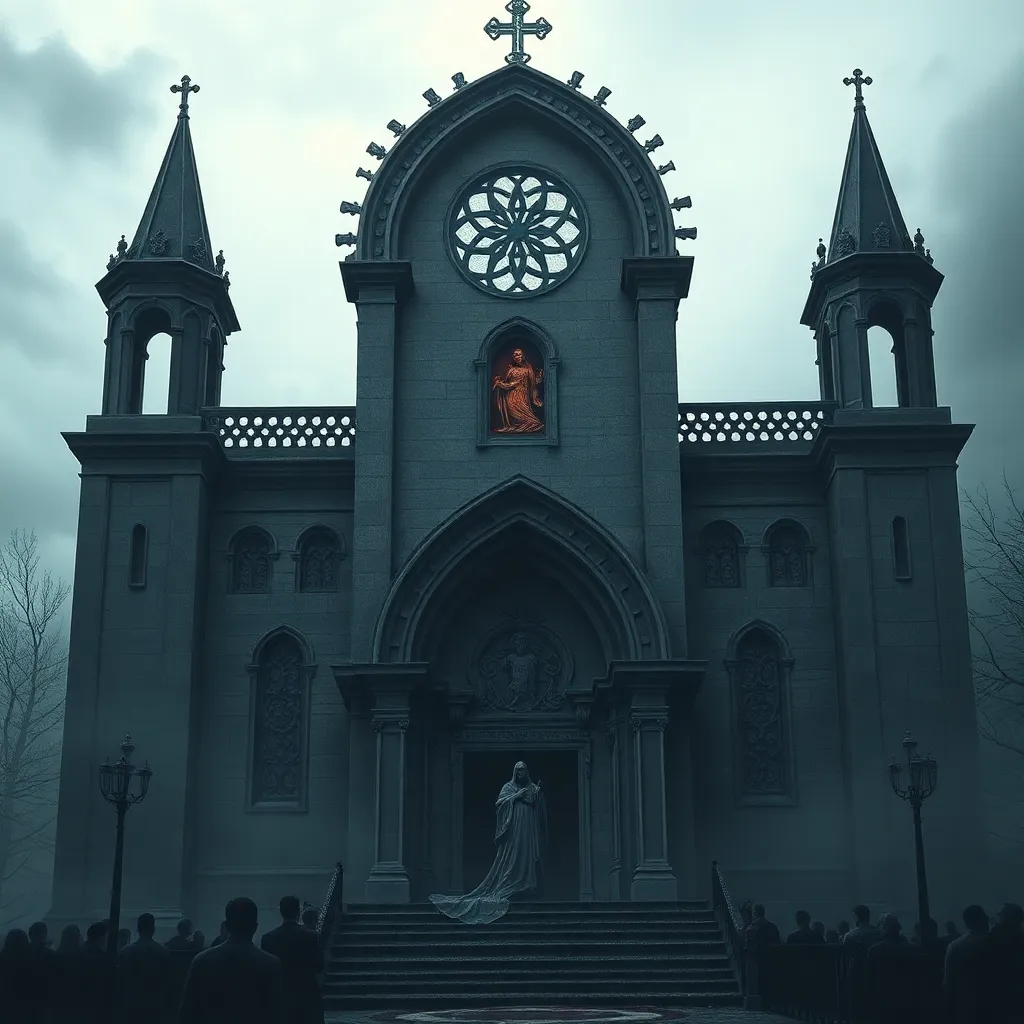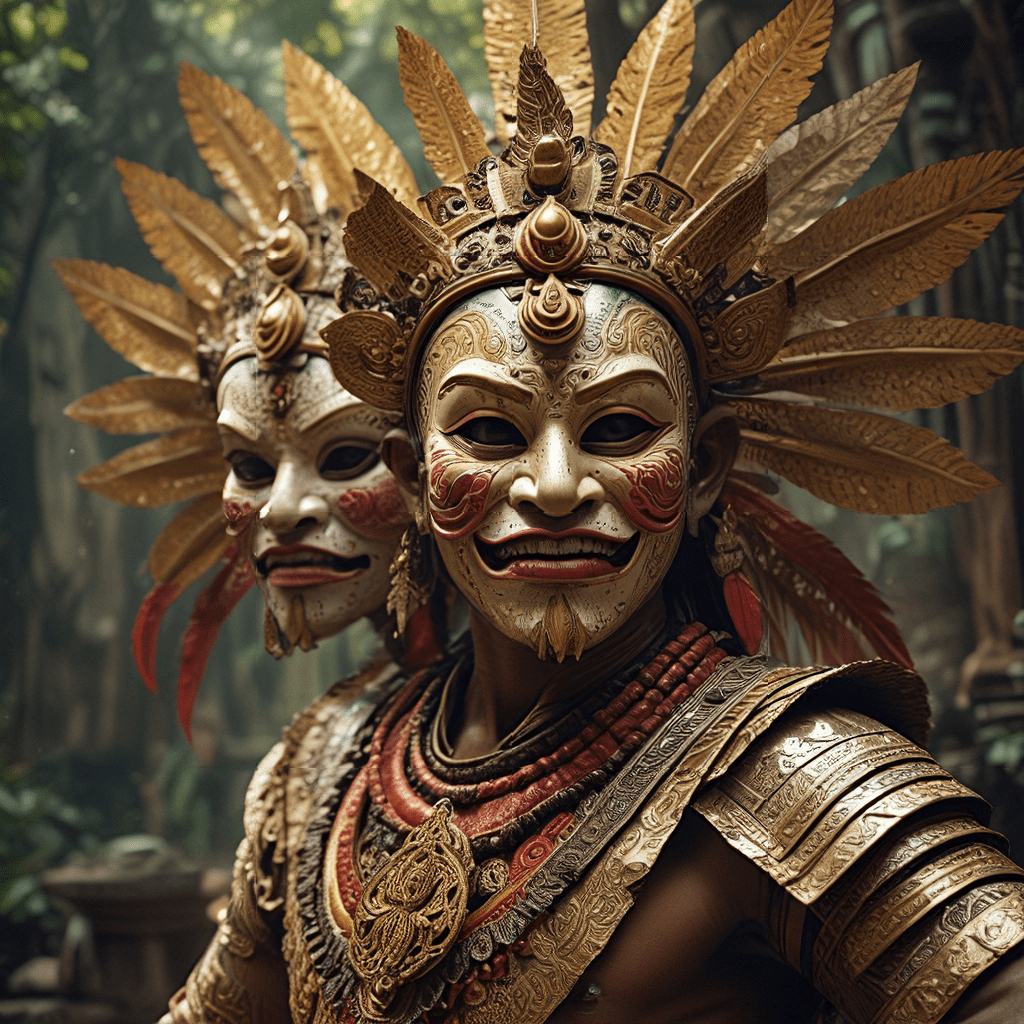The Legendary Arena: Battles of Mythological Proportions
I. Introduction to Mythological Battles
Mythological battles are epic confrontations that take place between gods, heroes, and monsters, often rooted in the folklore of ancient cultures. These battles are not merely physical contests; they represent the struggle between good and evil, chaos and order, life and death.
The importance of these battles transcends mere entertainment; they serve as cultural touchstones, embodying the values, fears, and aspirations of societies. From the ancient Greeks to the Norse, these narratives shaped the worldview of civilizations.
The concept of the Legendary Arena encapsulates these mythological battles, providing a fantastical setting where iconic figures from various mythologies can clash in epic confrontations.
II. The Origins of Mythological Figures
Mythological figures can be categorized into three primary groups: gods, heroes, and monsters. Each of these archetypes plays a significant role in the narratives of mythological battles.
- Gods: These are often supreme beings with immense powers, such as Zeus from Greek mythology or Odin from Norse mythology.
- Heroes: Mortals who possess extraordinary strength or skills, like Hercules or Achilles, often facing insurmountable odds.
- Monsters: Creatures that embody chaos and destruction, such as the Hydra or the Fenrir wolf.
The cultural significance of these figures is profound. They were often worshipped, feared, or revered, and their origins—whether divine birth or heroic deeds—greatly influenced their roles within battles. For example, Hercules, a demigod, undertakes epic tasks that demonstrate his strength and resilience, often clashing with monstrous foes.
III. The Legendary Arena: A Conceptual Framework
The Legendary Arena is envisioned as a grand coliseum, filled with spectators from various mythologies, all eager to witness the epic clashes of their champions. This setting allows for a theatrical presentation of mythological conflicts, where the stakes are high, and the outcomes are unpredictable.
Historically, arenas have served as sites for both entertainment and ritual. In ancient Rome, the Colosseum hosted gladiatorial contests, while sacred grounds in various cultures were reserved for divine encounters. The Legendary Arena draws from these historical contexts, emphasizing the importance of the battleground.
The rules of combat within the arena are simple yet profound: each combatant must rely on their unique abilities, strategies, and, at times, the favor of the gods. Spectators may also play a role, cheering for their chosen champions and influencing the battle’s atmosphere.
IV. Iconic Battles in Mythology
Throughout history, certain battles have stood out as iconic representations of mythological conflicts. These include:
- The Titanomachy: This epic battle pitted the Olympian gods against the Titans, culminating in the overthrow of the Titan ruler Cronus.
- The Battles of Hercules: Hercules undertook a series of labors, each presenting formidable foes, including the Nemean Lion and the Erymanthian Boar.
- The Clash of the Giants: In Norse mythology, Ragnarok foretells the end of the world through a cataclysmic battle between the gods and giants, leading to the death of many deities.
V. Legendary Weapons and Artifacts
Weapons and artifacts play a crucial role in mythological battles, often imbuing their wielders with extraordinary powers. Notable examples include:
- Excalibur: The legendary sword of King Arthur, symbolizing rightful sovereignty and power.
- Mjölnir: Thor’s hammer, capable of leveling mountains and returning to its owner when thrown.
- Gáe Buidhe: The spear of the Irish hero Cú Chulainn, said to guarantee victory in battle.
The significance of these artifacts goes beyond their physical prowess; they often carry deep symbolic meanings and are tied to the identities of their bearers. The unique abilities granted by these weapons can turn the tide of battle, making them sought-after treasures in the mythological world.
VI. Strategies and Tactics of Mythological Combatants
The strategies employed by mythological combatants vary widely, influenced by their abilities, backgrounds, and the context of their confrontations.
- Combat Styles: Gods and heroes may employ brute strength, agility, or cunning tactics, often reflective of their personalities.
- Divine Intervention: Many battles see the direct influence of deities, who may aid their favored champions or hinder their foes.
- Psychological Tactics: Manipulation of fear, deception, and cunning strategies often play a crucial role in the outcomes of these confrontations.
VII. The Role of Fate and Prophecy
Fate and prophecy are significant themes in mythological narratives, often determining the outcomes of battles. Many heroes are bound by prophecies that foreshadow their triumphs or downfalls.
- Influence of Fate: Characters may struggle against their fated paths, yet often find their actions unwittingly lead them towards their destinies.
- Prophetic Insights: Oracles and seers often provide warnings or guidance, shaping the decisions of key figures in battles.
- Free Will vs. Destiny: The interplay between personal choices and predetermined fates creates tension and depth in mythological stories.
VIII. The Aftermath of Mythological Battles
The aftermath of mythological battles is crucial for understanding their narratives. Victors often gain glory, while the vanquished face dire consequences.
- Consequences for Victors: Triumph can lead to worship, increased power, or tragic flaws, as seen with Achilles.
- Impact on the Vanquished: Defeated figures may undergo transformations, such as monsters being banished or gods losing their dominion.
- Cultural Reflections: Mythological battles often symbolize broader societal themes, reflecting on the nature of loss and victory.
IX. Modern Interpretations of Mythological Battles
In contemporary storytelling, mythological battles continue to resonate, appearing in literature, film, and video games. Modern interpretations often reimagine these ancient conflicts, making them accessible to new audiences.
- Literature: Authors like Neil Gaiman and Madeline Miller have retold mythological tales, bringing fresh perspectives.
- Film: Movies such as “Clash of the Titans” and Marvel’s “Thor” showcase mythological figures in modern contexts.
- Video Games: Titles like “God of War” and “Hades” allow players to engage with mythological narratives interactively.
This resurgence of mythological themes highlights their timeless appeal and adaptability, bridging the gap between ancient lore and contemporary culture.
X. Conclusion: The Legacy of Mythological Battles
The legacy of mythological battles is profound, leaving a lasting impact on storytelling traditions across cultures. They serve as cautionary tales, heroic sagas, and explorations of human nature.
Through these narratives, we learn valuable lessons about courage, the consequences of actions, and the eternal struggle between opposing forces. The enduring fascination with legendary heroes and their battles continues to inspire and captivate audiences, reminding us of our shared human experience.



